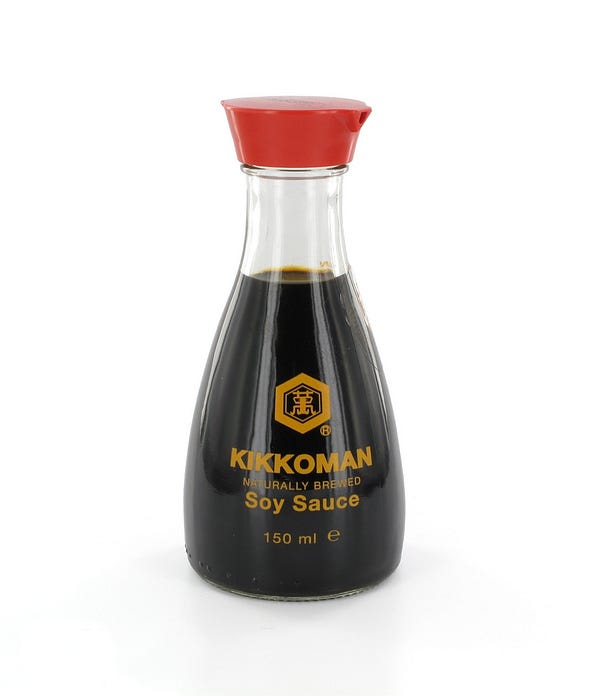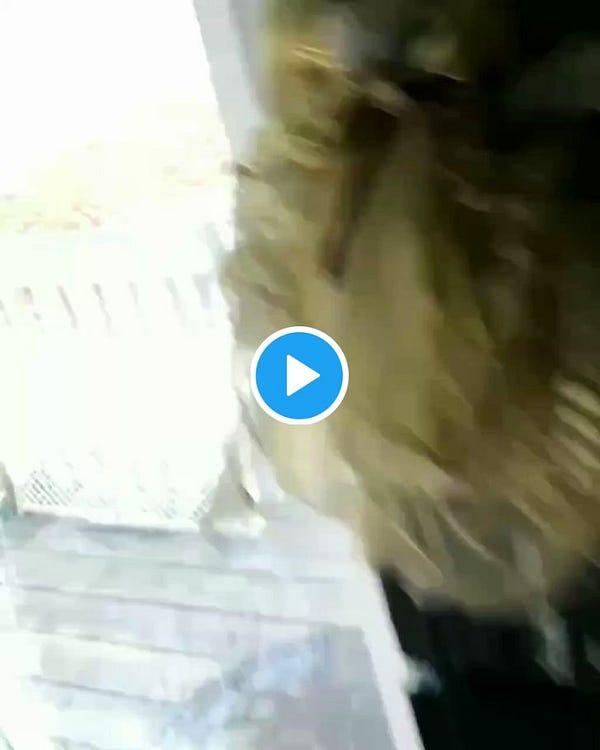Hello, good morning, happy Friday. This week I signed a lease for a new apartment, I will be moved in by the end of the month, I am very excited.
Not a lot else to update. Here’s a meat table and some meat chairs in front of a meat altar.

A monument to all our sins
Ed Yong has written for The Atlantic a story that has made waves across social media this week, and for good reason. If you read one thing this week, it should be this, “How the Pandemic Defeated America”:
How did it come to this? A virus a thousand times smaller than a dust mote has humbled and humiliated the planet’s most powerful nation. America has failed to protect its people, leaving them with illness and financial ruin. It has lost its status as a global leader. It has careened between inaction and ineptitude. The breadth and magnitude of its errors are difficult, in the moment, to truly fathom.
In the first half of 2020, SARS‑CoV‑2—the new coronavirus behind the disease COVID‑19—infected 10 million people around the world and killed about half a million. But few countries have been as severely hit as the United States, which has just 4 percent of the world’s population but a quarter of its confirmed COVID‑19 cases and deaths. These numbers are estimates. The actual toll, though undoubtedly higher, is unknown, because the richest country in the world still lacks sufficient testing to accurately count its sick citizens.
Going for the gold
This story is not new, but a friend of mine went to high school with the guy it is about, and I learned about it this week. “Tom Justice was once a cyclist chasing Olympic gold. Then he began using his bike for a much different purpose: robbing banks.” What a subheader.
The man in the baseball cap and sunglasses waited for the teller to notice him. The morning of May 26, 2000, was quiet inside the LaSalle Bank in suburban Highland Park. Standing patiently by the velvet ropes, the man looked at his wristwatch. The second hand ticked slowly.
“May I help you?” said the young woman behind the counter, smiling. The man reached to the back of his khakis, as if to fish out a wallet. Instead, he presented her with a 3-by-5-inch index card. The teller’s smile wilted. She stared at the words handwritten in black marker: “THIS IS A ROBBERY. PUT ALL OF YOUR MONEY IN THE BAG.”
Come on, this is an incredible premise, you know you want to read it.
One crust to rule them all, one man to find them
My friend John Carruthers absolutely loves pizza. The man is a pizza fiend. And he has dubbed himself “pizzadad”:
You first feel like a father when you hold your tiny, precious child. But you first feel like a dad when you find yourself spending inordinate amounts of time dicking around with the incredibly minute details of a hobby you picked up out of nowhere.
For my own dad, it was first woodworking, then collecting and trading World War I–era Lee–Enfield rifles. For me, at present, it’s an obsessive fixation on Chicago tavern-style pizza. I make a solid New York pie, I can manage a Detroit pan pizza, and I even have a fancy wood-burning oven for Neapolitan, but lately for me, it’s been tavern style or die.
Every single Friday night, the family and I make a bunch of square-cut pizzas and find something to watch on Disney+. Then, from Saturday to Thursday, I ruminate over the next time I’m going to get to make pizza. I read pizza books, check out online used book stores, and scour the pizza forums that haven’t had a UI update since I was in high school. It’s all fantastic fun. Take a wander over to my Instagram—it’s pizzas all the way down. I am Pizzadad now.
He wrote this article about his journey to make an incredible tavern-style pizza, the true Chicago pizza, because pizza is great and making it is fun. Recipes and food porn are included.
Is this securities fraud?
It would be newsletter malpractice for me to not write something about the Kodak debacle:
The announcement was an immediate boon for Kodak, which emerged from bankruptcy just seven years ago and has struggled to move beyond its past as a leading photography brand. It also had more tangible financial benefits for the company. It sent Kodak stock prices soaring—and redounded directly to the benefit of a number of executives, including chairman Jim Continenza, who just a day earlier had been granted stock options that appreciated almost immediately.
That timing drew quick scrutiny from lawmakers including Sen. Elizabeth Warren (D-MA), who called for a probe by the Securities and Exchange Commission. The Wall Street Journal reported on Tuesday that an SEC investigation is underway, though the company said it wasn’t aware of any such probe and would cooperate fully.
Basically what happened is that Kodak announced it was getting into something resembling vaccine production (what?), shortly before it did so someone spent a lot of money buying its stock at a very low price, and the announcement of the government cash infusion sent that stock price to ridiculous heights. The stock price soaring is not surprising, the very obvious insider trading kind of is. If you’re going to do insider trading on an obvious giant announcement that fundamentally alters the nature of a company, maybe you should do it in a less obvious way? I mean I suppose that you only have a limited window between when you learn about the announcement and when it happens, but maybe you could buy less stock, or diversify your purchases across companies as a reasonable explanation, or something.
Anyway the insider trading is bonkers but the way that the deal happened is arguably more insane:
In the months before it secured a federal financing deal worth $765 million to help produce COVID-19 drugs, camera giant-turned-pharmaceutical company Eastman Kodak jump-started its dormant lobbying operation, spending unprecedented sums to influence D.C. policymakers.
Kodak’s in-house lobbying team had officially dissolved in early 2019, according to disclosure filings submitted to federal regulators. But on April 1 of this year, the company started it back up, and proceeded to plow $870,000 into its D.C. influence machine. That sum, which went towards influencing both Congress and the administration, was more than twice as much as Kodak had ever spent on lobbying in any quarterly reporting period.
So, Kodak is humming along in 2019 and dissolves its lobbying arm, because who needs it. Then in 2020 it’s like “Hm, no, we should have lobbyists again. Also, we should lobby to become a vaccine company and get lots of government money to do that.” And the government says, “Sure, that is not at all suspicious, here is almost a billion dollars.” In 2020, this is all very cool and normal, and not problematic or suspicious or securities fraud or anything else illegal.
The WSJ reported that the SEC opened an investigation, as noted above, but like, what is going to happen? I doubt it will be pursued. In fact, I will be thrilled if it is pursued, because that would run contrary to the way everything about the government is “operating” right now. Financial crimes do not exist in the Trump administration, there is no such thing, profits are the ultimate moral good.
The revolution will be televised in 60-second videos
I include lots of articles by Taylor Lorenz in this newsletter. That is because she is a tremendous journalist, both in having her finger on the pulse of culture and in her ability to both explain a trend and tell a story about it. This week she wrote about TikTok, and if you want to understand why it’s popular and why the President is mad about it, you should read her piece:
Young users say TikTok is a crucial outlet for education about climate change, systemic racism and the Black Lives Matter movement. The talk of a ban only politicized them further, with many TikTokers believing Mr. Trump’s threats were a direct response to their campaigns against him.
“TikTok is to Black Lives Matter what Twitter was to the Arab Spring,” said Kareem Rahma, 34, a TikTok creator with nearly 400,000 followers on the app. Mr. Rahma’s TikToks from the Black Lives Matter protests in Minneapolis garnered tens of millions of views. “I saw a lot of youth on the ground TikToking the protests as opposed to livestreaming, tweeting or Instagramming,” he said. “The conversations these kids are having with each other are essential.”
All bosses are bad
There has been a spate of of ostensibly “progressive” companies engaging in union-busting efforts lately. It’s important to know what that looks like and to support unionizing workers! So here is a good article about both of those things:
THE THING ABOUT UNION-BUSTING as a tactic of workplace warfare is that it is extremely adaptable. Whether the goal is to kneecap a fledgling organizing drive or to intimidate those trying to rally their coworkers around a particular issue, for the bosses sitting at the top of the corporate food chain, there is a whole smorgasbord of attractive options available—depending on just how deep their pockets run and how public they want their machinations to be.
Over the years, the anti-union industrial complex has evolved into a lucrative field unto itself; it’s not all brash targeted firings and stuffy, captive audience meetings anymore. Some solutions are quieter, sneakier, and more suited to the image that outwardly progressive or even “social justice”-oriented organizations seek to convey. Whether it’s hiring a very specific kind of law firm, chiseling away at a new union’s bargaining unit to lessen its impact, or forcing workers to jump through the hoop of holding a secret ballot election instead of just voluntarily recognizing their union, these more genteel tactics can be just as effective as those wielded by old-fashioned strikebreakers, even if they’re no longer quite as violent.
What the fuck, Zuck
Facebook, unsurprisingly, continues to be the worst:
Last Friday, at another all-hands meeting, employees asked Zuckerberg how right-wing publication Breitbart News could remain a Facebook News partner after sharing a video that promoted unproven treatments and said masks were unnecessary to combat the novel coronavirus. The video racked up 14 million views in six hours before it was removed from Breitbart’s page, though other accounts continued to share it.
Zuckerberg danced around the question but did note that Breitbart could be removed from the company's news tab if it were to receive two strikes for publishing misinformation within 90 days of each other. (Facebook News partners, which include dozens of publications such as BuzzFeed News and the Washington Post, receive compensation and placement in a special news tab on the social network.)
“This was certainly one strike against them for misinformation, but they don't have others in the last 90 days,” Zuckerberg said. “So by the policies that we have, which by the way I think are generally pretty reasonable on this, it doesn't make sense to remove them.”
But some of Facebook’s own employees gathered evidence they say shows Breitbart — along with other right-wing outlets and figures including Turning Point USA founder Charlie Kirk, Trump supporters Diamond and Silk, and conservative video production nonprofit Prager University — has received special treatment that helped it avoid running afoul of company policy. They see it as part of a pattern of preferential treatment for right-wing publishers and pages, many of which have alleged that the social network is biased against conservatives.
It is a tremendous irony that Republicans cannot shut the fuck up about how Facebook is supposedly biased against them because their content is simply unpopular, and yet Facebook is actually secretly promoting their content and failing to enforce its rules against them for fear of backlash. Again, what a cool and normal fucking world we live in. They are not so much “a silent majority” as they are “an extremely fucking whiny minority who absolutely will not shut the fuck up.” And caving to that is, of course, a cool and normal way to run one of the most influential platforms in the world. Nothing could possibly go wrong, nor has it.
You deserve some good animal content
Have a good weekend.














